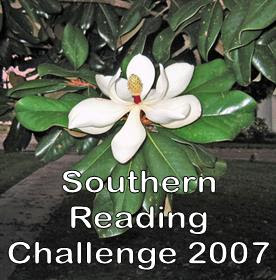I read Gail Godwin's
The Queen of the Underworld over the weekend. Godwin says in an afterword that she named her protagonist after Jane Austen's Emma Woodhouse, about whom Austen said, "I am going to take a heroine whom nobody but myself will much like." I found that interesting both because I'd finished a reread of
Emma a little over a week before and had the Kate Beckinsale miniseries of
Emma on hand to watch from Netflix, and because I'd found Miss Woodhouse a most likeable character in spite of her obvious flaws. I had much more difficulty liking Godwin's Emma Gant.
Isn't it strange how some characters will appeal to us no matter the extent of their wicked, wicked ways? Voice, tone, subtle (or not) authorial hints as to how we're really supposed to feel about such a person, there are numerous ways of making an awful person engaging, or his story compelling, on the page. And some characters, no matter how generally decent and kind, will infuriate us with their relatively minor shortcomings. For example, (spoiler alert for those still reading
David Copperfield) a couple months back my son found it impossible to forgive David for not warning Agnes of Uriah Heep's designs on her. He was still fuming at the end when David and Agnes marry; he didn't
care if Agnes loved and wanted him; she deserved better. That one sin of omission--
watch out for Uriah Heep-- undermined all the concern and appreciation he'd had for the David of the first half of the book. Ah, well, as he matures and goes through his own failure-to-act moments, his opinion toward David may soften. On the other hand, he was unfazed by Emma's meddling ways and snobbishness; she generally meant well, didn't she? But so did David. . .
Just a few not-well -thought-out musings while still on my first cup of decaf this morning to preface that were it not for the fact that I wanted to read
The Queen of the Underworld because it takes place the year I was born and is about a young woman from the mountains of North Carolina who majors in journalism at Chapel Hill that I would have cast the book aside after the second chapter when her true character was revealed: Emma Gant is more Lady Susan than Emma Woodhouse.
No perspective on Emma Gant is provided in the book save her own. Godwin says in the afterward (which I found and read after finishing chapter two; it's what kept me going) that she decided against having an older Emma look back on her youthful self or in writing the story with authorial detachment or irony--pure, unadulterated Emma-ness is all that the reader gets in this novel about a young writer's discovering where her stories are to come from and how she'll manage to write them (there's a great list of
kunstlerromans in the afterword).
Still, I would have appreciated a well-placed flash forward, or a line or two of insight and perspective from an older, wiser Emma Gant, one who'd realized usurping others before they can usurp you isn't quite the best way to go through life.









